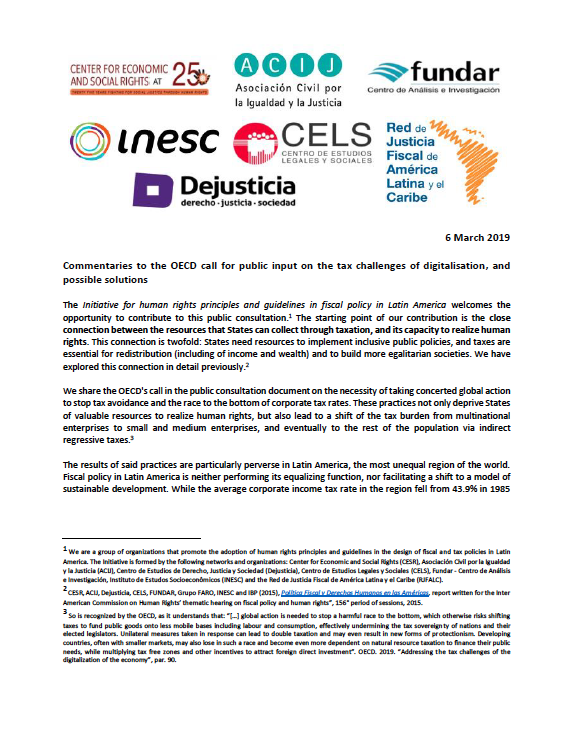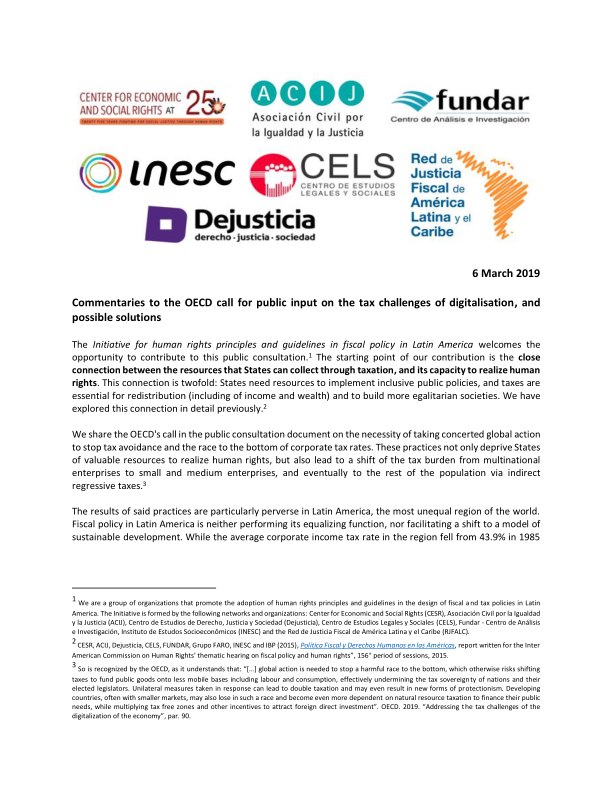This submission by the Initiative for Human Rights Principles and Guidelines in Fiscal Policy in Latin America to the Organization for Economic Cooperation and Development (OECD) regards the tax challenges of digitalization. The Initiative – comprised of CESR, the Asociación Civil por la Igualdad y la Justicia (ACIJ); the Centro de Estudios de Derecho, Justicia y Sociedad (Dejusticia); the Centro de Estudios Legales y Sociales (CELS); Fundar (Centro de Análisis e Investigación); the Instituto de Estudos Socioeconômicos (INESC); and the Fiscal Justice Network of Latin America and the Caribbean – stresses that the current global tax rules are not allowing developing countries to fulfill their obligation to mobilize adequate resources for securing human rights and tackling inequality.
In particular, the idea that multinationals should be treated as independent entities that carry out transactions at market prices for tax purposes (the “arm’s length principle”), as well as the test of physical presence within a State to allocate States’ taxing rights, have proven unfit for the 21st century.
The document indicates that both corporate tax avoidance and the harmful race to the bottom on corporate taxes–including the proliferation of opaque tax incentives granted without serious cost-effective assessments—are depriving States of valuable resources for health, education and other key investments to meet the Sustainable Development Goals (SDGs).

